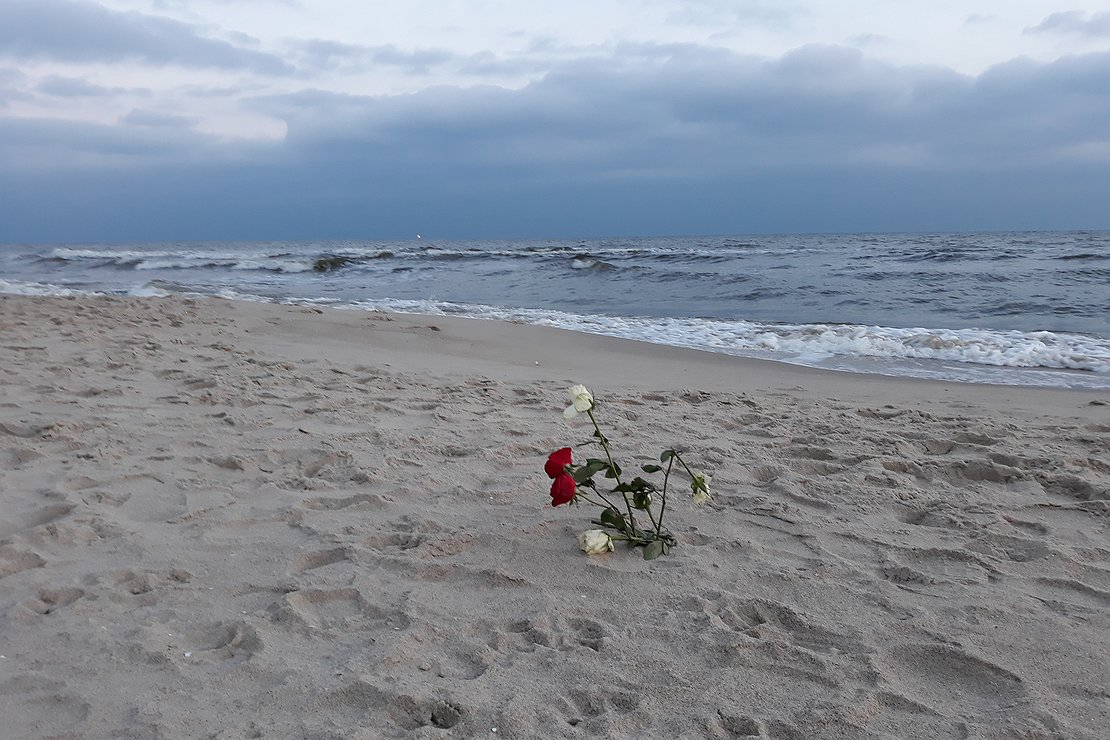
Jubilee ‘eigentümlich frei’ conference:Independent Thinkers Still Exist!
Whether Zinnowitz is the most beautiful seaside resort on the German Baltic island of Usedom can be disputed with the fans of Ahlbeck and Heringsdorf. But it's undisputedly the one with the strangest history. The inconspicuous Slavic place Tzys, owned by the convent of Krummin, disappeared without trace during the Thirty Years' War, the foundational cataclysm of Europe. Much later, the Prussian king Frederick II sent eight settlers to build a new town on the deserted land. The royal estate was given the name ‘Zinnowitz.’ The estate house has survived all storms of time and is still standing at the Achterwasser.
The carefully restored beach villas on the beach promenade, modeled on Otto Niemeyer-Holstein's prototype, and the luxury hotel ‘Preußenhof,’ the café of which is still arranged in Wilhelminian style, bear witness to its heyday as a seaside resort. Not far from here is the ‘Palace,’ where such diverse celebrities as Hedwig Courths-Mahler, Walter Rathenau, Hans Fallada and Wernher von Braun stayed in their time. In the 1990s Roman Polanski and Pierce Brosnan were spotted here. It never rains in Southern California, but there’s no American coast that can compete with the fine sandy beach of Zinnowitz.
The spirit of the times has played nasty tricks on the place. During the Nazi era, the ‘Zweckverband zur Freihaltung des Ostseebades für deutschblütige Kurgäste’ (‘Special Association for Reserving the Baltic Seaside Resort for German-blooded Spa Guests’) was founded here. That didn't save Zinnowitz. The Baltic seaside resort was closed in 1938. Nine kilometers to the north was the Peenemünde Army Research Station, and the entire north of Usedom became a military restricted area. Today you can still see the remains of missile launching pads in neighboring Zempin.
In the workers' and peasants' state, aka the GDR, the East German ‘Free German Trade Union Federation’ declared Zinnowitz the ‘first and largest seaside resort of the labourers.’ In a cloak-and-dagger operation with the innocent sounding code name ‘Rose,’ all hotels and boarding houses were expropriated without compensation, and their owners were banished or imprisoned. The Soviet-German joint-stock company Wismut shaped the new flair of the place. Here, its uranium miners were allowed to recover from their dangerous work. The GDR went to some expense in order to achieve this. To keep the Wismut miners in good spirits, not only did the Russian State Ballet perform here, but so too did the ensemble of the Milanese La Scala.
One of the most characteristic remnants of the Wismut culture is the hotel ‘Baltic,’ which was built in 1977 as the ‘Roter Oktober’ (‘Red October’) on the occasion of the 60th anniversary of the October Revolution. Today, the ‘Baltic’ is not only one of the largest, but also one of the most popular sports and wellness hotels on the Baltic Sea coast. The socialist colossus has become a pleasant place, with an elegant interior, an extremely successful color scheme and many details that testify to the managers' fine taste for art.
But there’s much more to the ‘Baltic:’ for a few years now, it has been in January a meeting place for the few independent thinkers who still exist in the ‘uniformly multicultural’ German republic. The fact they don’t have to ruminate in isolation, but can come together is thanks to one man: André Lichtschlag.
On my way to Usedom I tried to remember when I first came into contact with Lichtschlag and his journal ‘eigentümlich frei.’ I don't remember anymore. All I know is that I witnessed the beginnings of his successful company. Very soon as a sponsor, later also as an author. As a very young man, Lichtschlag had set himself the goal of giving the few remaining German libertarian voices a mouthpiece. With success. This year ‘eigentümlich frei’ will be 20 years old. This year's conference, under the title ‘Media in Transition,’ was therefore also a birthday party.
We met in the conference room of the ‘Baltic,’ which was filled to capacity. The head of the house, Mr. Dornbusch, personally greeted the participants. A few days earlier, he had had to endure one of the attacks that have become commonplace in multicultural Germany, in which denunciation has become public policy. A self-appointed state protector demanded to know why the hotel was letting out rooms to such an anti-state group as the ‘ef’-people, and demanded the bookingbe canceled. No room for citizens who still think for themselves! Unlike in similar cases, the ‘antifascist scout’ was unsuccessful; he was not up to the hotelier's libertarian arguments.
The conference posters aroused the curiosity of the numerous hotel guests: there were enquiries, but no anger or resentment. Fortunately, the general public is more tolerant than the tolerance-preaching authorities and their executors, who are just about as tolerant as the GDR was democratic.
I don't like conferences, I find them dull and boring. I usually have to take a break now and then. Not in this case! From the first to the last talk it was exciting and instructive. Because I can't mention them all, it would be unfair to single any one out. All the contributions dealt with the question of how the so-called '68-generation, who started as an anti-authoritarian movement, ensured with the help of the media that natural authority was replaced by state patronage. The admirers of Ho Chi Minh and Mao have put freedom in the shackles of political correctness. They have replaced the anti-totalitarian consensus with anti-fascism and successfully destabilised the rule of law. Would you like an example? The Federal Labour Court has introduced the ‘permitted lie’ and thereby undermined confidence in agreed contracts.
The ‘Anabaptists of the Affluent Society,’ as one speaker called the '68-generation, hate the division of labor and the individual diversity that emanates from it. They want the collective, the uniform, consensual mass. Those who think differently are to be opposed with ‘cultural terrorism,’ as one of the mentors of the '68-ers, the philosopher Georg Lukács, called it with disarming openness.
Minority rights do not exist, according to another provocative thesis of the conference. There are only rights for the individual, not special rights for groups, which would remove equality before the law.
Were they all of the same opinion? No! Different positions collided at this congress. Passionate discussions took place.
In the evening the congress not only danced, but also told jokes. Jokes have almost disappeared from multicultural Germany. The conclusion of the exploratory talks of the possible coalition government parties CDU and SPD received the comment: “Now we’ll get another four years Merkel without parole.” About the content of the exploratory paper, which the mainstream press described as lacking in ideas and courage, it was said: “The parties have failed to pass a resolution on an increased deposit on plastic bottles, which would have improved the situation of our pensioners.” (Some of whom are so poor they fish these bottles out of trash cans in order to make a little money.) Or: “Hope is the little sister of stupidity. Stupidity knows no bounds, but many people.” But the best of all came last: “When Germany becomes a Muslim country, it will no longer have a female chancellor.” So there are still jokes around, but who dares to retell them?
Lichtschlag’s lively band dares to do so. And more. The authors of ‘eigentümlich frei’ grab attention again and again with groundbreaking texts that do not seem to age. Freedom of thought, the ability to analyse oneself and to keep examining oneself critically are a fountain of youth for the mind. Lichtschlag’s company has grown steadily over the 20 years of its existence. Without any state funding. It offers a product that is increasingly in demand and for which readers are willing to pay. Asked if he would like to have a patron worth millions, Lichtschlag briefly reflects and then answers in the negative. He prefers to grow more slowly but remain independent. His authors are his capital.
Moderator Carlos Gebauer summarised the conference at its conclusion: Every individual voice is a means against the prescribed sameness of opinion. Each independent text undermines the rule of the politically correct despots.
Good texts can be expected from ‘eigentümlich frei’ in the future too. They will guarantee the next successful 20 years!
Translated from eigentümlich frei, where the original article was published on 17th January 2018.




